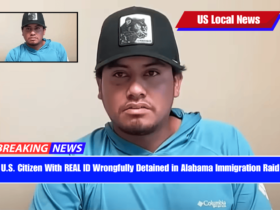In a recent statement, Mexico’s President Claudia Sheinbaum publicly confirmed that she had rejected an offer of military assistance from U.S. President Donald Trump.
This offer, which aimed to help Mexico fight drug trafficking and violent cartels, was made during a phone conversation between Trump and Sheinbaum.
The Mexican president firmly responded, emphasizing that Mexico would never accept the presence of U.S. military forces on its territory.
Sheinbaum’s Strong Stance on Sovereignty
During the phone call with Trump, which was reported by the Wall Street Journal, Trump asked, “How can we help you fight drug trafficking?” In response, Sheinbaum made it clear that while Mexico was open to collaboration, it would not allow foreign military presence.
She stated, “No, President Trump, our territory is inalienable, sovereignty is inalienable.” She added that Mexico would be willing to share information and work together, but emphasized that both countries would operate within their respective borders.
U.S.-Mexico Border Security Collaboration
Despite the rejection of military aid, Sheinbaum’s office acknowledged ongoing efforts between the U.S. and Mexico to improve border security. White House deputy press secretary Anna Kelly pointed out the close cooperation between the two nations in addressing border security.
She highlighted that President Trump’s efforts had helped advance these security measures, including the removal of cartel leaders to face justice in the U.S.
Trump’s administration also used CIA drones to conduct surveillance over Mexican territory, with the cooperation of the Mexican government. This collaboration was seen as a step toward improving safety and reducing cartel activity.
The U.S. Focus on Cartels and Security
In line with the ongoing border security initiatives, Trump’s administration formally labeled Mexican drug cartels as “foreign terrorist” organizations. This move reflected the growing concern over the activities of these groups, which have been blamed for rising drug violence and smuggling operations across the U.S.-Mexico border.
However, Kelly also pointed out that Mexico must do more to protect Americans from the effects of these cartels. She urged the Mexican government to take stronger actions against the “drugs and violence” that affect communities on both sides of the border.
Debate Over Military Action
In January, a conservative think tank, the Heritage Foundation, released a report discussing the possibility of using military force to address the security issues at the border.
The report acknowledged that cartels were continuing to grow in power, with illegal immigration and narcotics smuggling accelerating. It also noted that security cooperation between the U.S. and Mexico had weakened.
While the report suggested that direct military action should only be a “last resort,” it emphasized the need for joint military action between the U.S. and Mexico to confront the escalating cartel problem.
The Heritage Foundation also noted that unilateral U.S. military action might be considered in certain contexts to disrupt cartel activities, especially if Mexico continued to resist such cooperation.











Leave a Reply